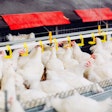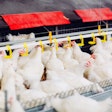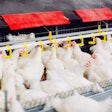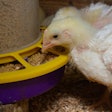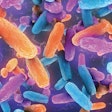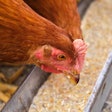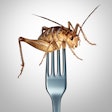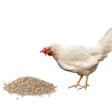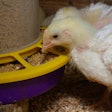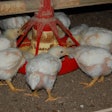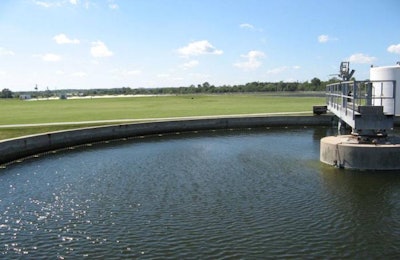
The fact that the Simmons Foods Southwest City Complex has not had a notice of violation of its National Pollutant Discharge Elimination System (NPDES) permit in 14 years is a marvelous achievement in a corner of the world where environmental issues are under unceasing political and regulatory spotlight.
Simmons Foods – with operations in Arkansas, Missouri and Oklahoma – is focused on a higher goal than mere environmental regulatory compliance. The company believes that “producing the best water possible” is paramount to its success. This has led the producer of poultry, rendered byproducts, feed ingredients and pet food to provide continual investment and training in the environmental aspects of the company’s operations.
One indicator of the environmental focus at Southwest City is that a process control worksheet is sent daily to personnel throughout the complex, including poultry processing, tendering, engineering and environmental, as well as the chairman of the company’s board of directors. The control worksheet gives lab results from the wastewater facility’s lab technician. The results give everyone viewing the worksheet an opportunity to assess the “health” of the wastewater plant at almost any point in the treatment process, day after day.

Left to right: Andy Brashear, area environmental manager; Seth Walters, director of environmental quality; and Mike Davis, director of engineering
One of the most interesting investments at the complex has been in the feed ingredients division (PRO*CAL), where a waste heat evaporator (technology from the citrus industry) was added to use waste heat to reduce nutrients in high-strength waste streams and capture those nutrients for use in other processes. Using the technology, dissolved air flotation (DAF) skimmings from poultry wastewater are converted from a waste product into an ingredient for the production of a high-fat, high-protein, high-value cattle feed ingredient.
PRO*CAL utilizes DAF skimming from the Southwest City facility and six other processing plants in the area as an ingredient in the production of the feed ingredient. The process allows 130 million pounds of material to be recycled into the food chain each year rather than being land applied.

Don Brown, project manager, holds a bag of PRO*CAL – a 55 percent protein and 34 percent fat product made from poultry blood, fat and meat particles, primarily used in the dairy industry – along with Seth Walters.
Not only has the addition of the waste heat evaporator reduced the phosphorus in the high-strength wastewater from 450 pounds per day to zero, the organic solids that previously had to be biologically treated are now being captured and utilized in feed products.
Waste heat from three cookers for rendering is used as the only heat source for the evaporator through heat exchangers. The evaporator can process 80,000 pounds of product per hour using only waste heat from the cookers.
The Simmons Foods Southwest City Complex slaughters and processes 450,000 broilers per day at an average live weight of 4.25 pounds. The rendering facility produces approximately 2,000 tons of poultry protein byproducts per day. The average wastewater flow at the complex is 2.28 million gallons per day.
The Clean Water Awards are presented annually by U.S. Poultry & Egg Association.
Learn more about wastewater treatment at Simmons Foods:
Simmons Foods produces high-protein feed ingredient from wastewater, http://video.wattagnet.com/k49b









